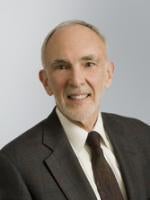Recently, the Ninth Circuit, sitting en banc, vacated the obstruction of justice conviction of former San Francisco Giant All-Star outfielder Barry Bonds. The conviction rested on a rambling, evasive answer given before a grand jury proceeding during which Bonds had been questioned for hours about his suspected use of steroids. However, after 12 years, the former slugger presumably is relieved to finally have this matter behind him – much like finding out that the manager has graciously given you the afternoon off against the reigning Cy Young Award winner or a wily knuckleballer.
This saga has been drawn out like a long, extra-inning battle, but can be summarized to fit in a SportsCenter highlight. Over a decade ago, Bonds was charged with perjury – a felony – for providing evasive answers to a federal grand jury. The testimony in question was in connection with the infamous Bay Area Laboratory Co-operative (BALCO) steroids controversy, one of the major events that triggered a crackdown and end of what is commonly known as baseball's "Steroids Era." As part of the judicial process, Bonds appeared in front of a grand jury in December 2003. There, he admitted to using a clear substance and cream that he received from his trainer at the time – reasoning that the trainer told him they were legal substances – but denied ever using steroids. Apparently, though, his responses just missed the outside corner when it came to pleasing the jury, which eventually came out of the bullpen to deliver a conviction for obstruction of justice, not perjury. The guilty verdict earned Bonds 30 days of house arrest, two years of probation and 250 hours of community service, but the sentence was stayed while Bonds appealed his conviction. Due to a three-judge Ninth Circuit panel initially upholding the conviction, however, Bonds eventually was required to serve this sentence prior to the most recent development.
Having already served the sentence, Bonds broke out of his years-long legal slump by finally having his conviction overturned by a 10-1 en banc vote. When reviewing the obstruction of justice conviction, the court determined that insufficient evidence existed to convict Bonds. Because a reversal for insufficient evidence implicates Bonds's rights under the Double Jeopardy Clause, he may not be tried again. Although the decision was near-unanimous, there were three concurring opinions, each with different rationales. The first noted that Bonds's statement was nonresponsive and that in no respect could it constitute a criminal act. The second opinion reasoned that a statement such as Bonds's merely triggers the prosecutor's duty to pin the witness down and elicit a clear response. The final concurrence indicated that the examination must be considered as a whole, and when doing so, it cannot be said that Bonds obstructed the process. (United States v. Bonds, No. 11-10669 (9th Cir. Apr. 22, 2015)).
No matter how the court got to home plate, the end result is that, like many of Bonds's home runs in San Francisco, this case is now going, going, gone, deep into McCovey Cove!



 />i
/>i

